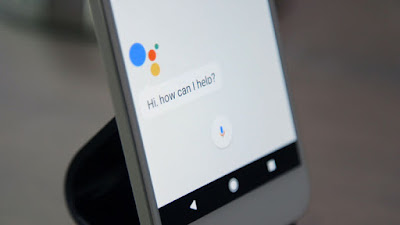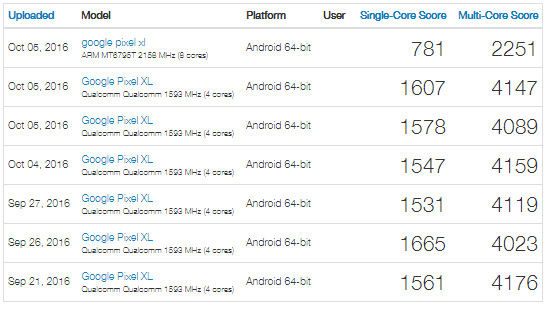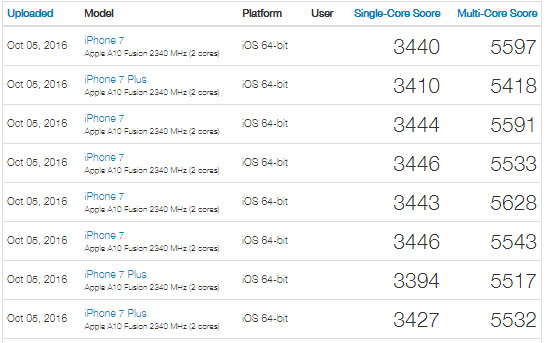Not long ago Google reported its new Google Pixel handsets. The Pixel and Pixel XL, both of which keep running on Android, offer a suite of great specs and components.
Notwithstanding, at the occasion, Google attacked Apple, proposing that its new handsets beat the iPhone 7 and 7 Plus, which is awesome, considering that Apple's greatest opponent just pulled its most current leader off the market. Yet, how do Google's and Apple's handsets think about?
 At the dispatch occasion toward the beginning of October, Google put on what numerous thought to be a decent show, with those hoping to proceed onward from what was the Note 7 disaster now having something to stick to.
At the dispatch occasion toward the beginning of October, Google put on what numerous thought to be a decent show, with those hoping to proceed onward from what was the Note 7 disaster now having something to stick to.
Be that as it may, in case you're an adherent to benchmark testing, it creates the impression that Apple does not have much to be worried about.
At Geekbench 4, tests have been race to decide how the Google Pixel and Pixel XL perform in both single-center and multi-center tests.
These early tests show that the Google Pixel and Pixel XL do not compare to the iPhone 7 or 7 Plus. In fact, the tests show that the older iPhone SE and even the 6s were capable of outperforming the Google handsets.

If you’re not familiar with benchmark testing, it is usually undertaken to determine how well a device is performing.
The results will give a reasonable idea as to how the device will cope/perform in real-world situations.
Having been run through the Geekbench 4 system, the Google Pixel and Pixel XL handsets both returned a 1550 single-core score. Both devices received a score of 4,000 on the multi-core test.

In comparison, the iPhone 7 and 7 Plus with their A10 Fusion chips returned a single-core score of 3,500, which is more than double that returned by the Pixel handsets.
Additionally, the multi-core test revealed more significant returns for the iPhones with a score of 5,500.
Prior I addressed the way that it shows up from early testing that Apple's more seasoned A9 gadgets likewise beat the Pixel.
This is in single-center execution just, with the Snapdragon 821 driving the path in multi-center execution.
Commentators of the Google Pixels are proposing that Apple's execution prevalence could be down over its equipment being better at crude preparing.
Concerning what both arrangements of handsets offer, both Pixels accompany the Snapdragon 821 chipset, in addition to 4GB of RAM.
Both Apple gadgets accompany the A10 Fusion chipset, despite the fact that the standard 7 has 2GB of RAM, and the iPhone 7 Plus has 3GB of RAM.
The Pixel and Pixel XL accompany two stockpiling choices, 32GB and 128GB. Contingent upon which one you go at, the cost will clearly vary.
At the most reduced end, there's the sans sim show with 32GB of capacity at $769. For the 128GB model, you'd pay $869, which is comparable in cost to the 7 Plus.
The standard 32GB iPhone 7 is estimated at $649 and goes as far as possible up to $849 for the 256GB variation.
In the event that you need the iPhone 7 Plus, it will cost you $769 for the 32GB and as much as $969 for the 256GB model.
Notwithstanding, at the occasion, Google attacked Apple, proposing that its new handsets beat the iPhone 7 and 7 Plus, which is awesome, considering that Apple's greatest opponent just pulled its most current leader off the market. Yet, how do Google's and Apple's handsets think about?
Google Pixel
Be that as it may, in case you're an adherent to benchmark testing, it creates the impression that Apple does not have much to be worried about.
At Geekbench 4, tests have been race to decide how the Google Pixel and Pixel XL perform in both single-center and multi-center tests.
Test Results
These early tests show that the Google Pixel and Pixel XL do not compare to the iPhone 7 or 7 Plus. In fact, the tests show that the older iPhone SE and even the 6s were capable of outperforming the Google handsets.
Image Source: Geekbench 4
If you’re not familiar with benchmark testing, it is usually undertaken to determine how well a device is performing.
The results will give a reasonable idea as to how the device will cope/perform in real-world situations.
Having been run through the Geekbench 4 system, the Google Pixel and Pixel XL handsets both returned a 1550 single-core score. Both devices received a score of 4,000 on the multi-core test.

Image Source: Geekbench 4
In comparison, the iPhone 7 and 7 Plus with their A10 Fusion chips returned a single-core score of 3,500, which is more than double that returned by the Pixel handsets.
Additionally, the multi-core test revealed more significant returns for the iPhones with a score of 5,500.
Apple leading the way?
Prior I addressed the way that it shows up from early testing that Apple's more seasoned A9 gadgets likewise beat the Pixel.
This is in single-center execution just, with the Snapdragon 821 driving the path in multi-center execution.
Commentators of the Google Pixels are proposing that Apple's execution prevalence could be down over its equipment being better at crude preparing.
Phone Hardware
Concerning what both arrangements of handsets offer, both Pixels accompany the Snapdragon 821 chipset, in addition to 4GB of RAM.
Both Apple gadgets accompany the A10 Fusion chipset, despite the fact that the standard 7 has 2GB of RAM, and the iPhone 7 Plus has 3GB of RAM.
Phone Prices
The Pixel and Pixel XL accompany two stockpiling choices, 32GB and 128GB. Contingent upon which one you go at, the cost will clearly vary.
At the most reduced end, there's the sans sim show with 32GB of capacity at $769. For the 128GB model, you'd pay $869, which is comparable in cost to the 7 Plus.
The standard 32GB iPhone 7 is estimated at $649 and goes as far as possible up to $849 for the 256GB variation.
In the event that you need the iPhone 7 Plus, it will cost you $769 for the 32GB and as much as $969 for the 256GB model.
Comments
Post a Comment